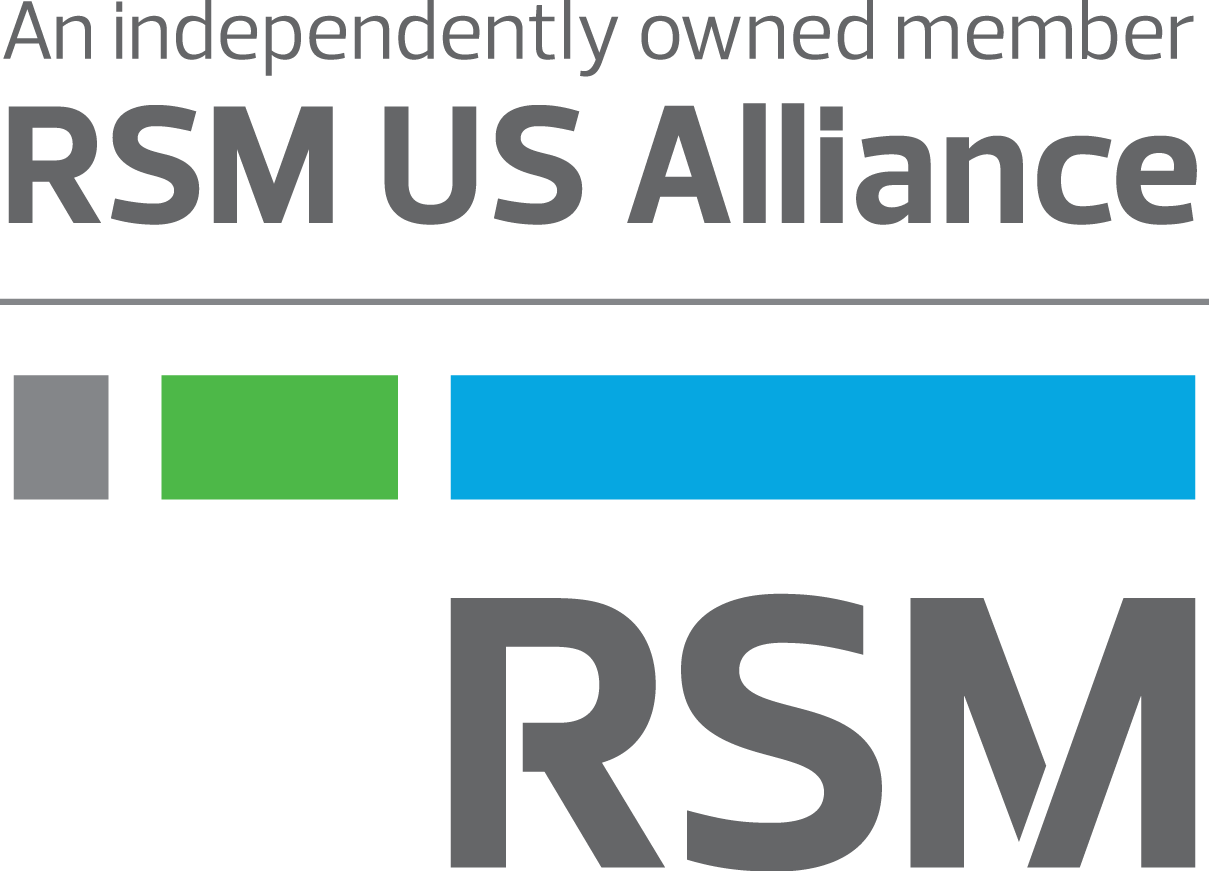
Tax Court rules that IRS lacks authority to assess penalties under section 6038(b)
TAX ALERT | April 06, 2023
Authored by RSM US LLP
Executive summary: IRS must ask first and assess later
The United States Tax Court has ruled that the IRS can no longer administratively assess and collect penalties under Internal Revenue Code section 6038(b) for the failure to timely file information returns with respect to foreign business entities controlled by U.S. persons. The Tax Court’s opinion does not affect the obligation of taxpayers described in section 6038(a) to timely file the information returns, and taxpayers who fail to do so could still be liable for the penalties. Taxpayers who have unpaid penalties assessed under section 6038(b) should consult their tax advisor.
Tax Court rules that IRS lacks authority to assess penalties under section 6038(b)
Statutory Framework
I.R.C. Section 6038(a) requires United States persons to report information to the Commissioner with respect to any foreign business entity which the person controls. The Form used to report the information is Form 5471, Information Return of U.S. Persons With Respect to Certain Foreign Corporations. Section 6038(b)(1) imposes a penalty of $10,000 on any U.S. person who fails to timely furnish the information required under section 6038(a). A penalty is imposed with respect to each annual accounting period for which a failure exists. Section 6038(b)(2) imposes a continuation penalty of $10,000 for each 30-day period (or fraction thereof) during which a failure to report the information continues with respect to any annual accounting period after an initial 90-day notice period, subject to a maximum of $50,000.
Alon Farhy v. Commissioner, 160 T.C. No. 6 (April 3, 2023)
During the years 2003 through 2010, Farhy was a U.S. person who owned 100% of Katumba Capital and 100% of Morningstar Ventures, Inc., foreign corporations incorporated in Belize. His ownership percentages triggered the requirement to file Forms 5471 pursuant to Internal Revenue Code section 6038(a). However, Farhy participated in an illegal scheme to evade tax during these years and willfully failed to file Forms 5471 with respect to the two corporations. The IRS mailed Farhy a notice proposing the assessment of penalties pursuant to section 6038(b) for his failure to file Forms 5471 for the years at issue.
In November 2018, the IRS assessed the initial 6038 penalty of $10,000 for each corporation for each year at issue. Shortly thereafter, the IRS assessed the continuation penalties also under section 6038(b)(2). In total, $50,000 per year was assessed. The IRS issued an intent to levy notice in January 2019. Farhy submitted a timely request for a due process hearing disputing the IRS’s right to assess penalties under section 6038(b). In June 2021, the IRS issued Farhy a Notice of Determination for the unpaid section 6038 penalties. Farhy timely filed a petition with the U.S. Tax Court for a review of the IRS determination. The authority of the IRS to assess these penalties was the only issue entertained by the Tax Court.
Judge Marvel issued an opinion for the Court on April 3, 2023, and ruled that the IRS could not proceed with collection of the penalties at issue via a levy because the IRS had no authority to assess the penalties and had not taken other action to establish the liabilities. In so ruling, Judge Marvel held that the assessment authority provided for in many of the Internal Revenue Code’s other penalty provisions and the general authority for assessment of certain penalties found in other sections of the Code did not apply to section 6038(b). Nor does the Code contain a provision that deems the section 6038(b) penalties to be treated as tax for purposes of assessment and collection. The court would not infer the power to administratively assess and collect the section 6038(b) penalties when Congress did not see fit to expressly grant that power to the Secretary of the Treasury.
The opinion acknowledged that section 6038 penalties are not subject to deficiency procedures. The section 6038 penalties assessed against taxpayers are imposed by subtitle F, chapter 61, and therefore outside the Court’s deficiency jurisdiction. However, for the Court this acknowledgement did not lead to a conclusion that the penalties are assessable penalties in the case where, as here, Congress had not given the Commissioner the authority to assess the penalty. The Court concluded by holding that the section 6038 penalties assessed against Farhy were assessed without the statutory authority to do so.
Implications of the opinion
The IRS may respond to the Farhy opinion in several ways. It may file a motion for reconsideration with the Tax Court, asking the Court to review its opinion and reverse itself. It may appeal the opinion to the Circuit Court of Appeals for the District of Columbia. Or it may file a nonacquiescence concerning the opinion, indicating that it does not agree with the opinion but is not pursuing an appeal. With or without a nonacquiesence, the Service could let the opinion stand and seek a legislative fix from Congress. Such a legislative cure might come in the form of an amendment to section 6038 or to some other statute within Subpart A of Part III of Subchapter A of Chapter 61 of Subpart F of the Code that would expressly grant the IRS the authority to assess and collect the penalties in section 6038(b) or in all of Subpart A.
For now, the Farhy opinion will require the IRS to consider whether the Commissioner should continue to automatically assess penalties under section 6038(b) when U.S. persons fail to file or are delinquent in filing the Forms 5471 required by section 6038(a), or whether the Commissioner should refrain from doing so until the Farhy opinion is reversed or a legislative fix is enacted. Any decisions made by the Commissioner will be in published guidance.
The opinion raises an issue with respect to the statute of limitations on potential claims for refund of section 6038(b) penalties already paid by taxpayers. If the penalties are not assessable, they may be treated as other non-tax exactions collected by the government and if so, may be governed by a six-year statute of limitations found in 28 U.S.C. section 2401(a). Until now, such penalties were governed by the statute of limitations found in section 6511(a), which generally provides for a statute of limitations that extends to the later of three years after the Form 5471 was filed or two years after the penalty was paid.
It is important to note that the Farhy opinion does not excuse taxpayers from liability for the penalties under section 6038(b). The opinion merely requires the Commissioner to take action— the commencement of a civil action and the securing of a judgment— to establish the liability which can be collected in the manner of a judgment.
Extension of the opinion to other penalties
Section 6038 is part of Subpart A of Part III of Subchapter A of Chapter 61 of Subpart F of the Code. Other penalties in this Subpart A, such as those found in sections 6038A, 6038B, 6038C, 6038D, 6039E, 6039F and 6039G, similarly contain no language which would make them assessable by the Commissioner. Thus, it would not be surprising to see taxpayers facing such penalties argue, based on the reasoning in the Farhy opinion, that the Commissioner has no authority to collect the penalty without first filing a lawsuit.
The table below outlines common international tax filings with section 6038 penalty exposure which could be impacted by the Farhy opinion.
|
Form |
IRC |
Penatly |
|
5471 – Information Return of U.S. Persons with Respect to Certain Foreign Corporations |
6038, 6679 |
$10,000. Maximum penalty of $60K. Reduced foreign tax credit (FTC). Also, section 6662(j). |
|
5472 – Information Return of a 25% Foreign-Owned U.S. Corporation or a Foreign Corporation Engaged in a U.S. Trade or Business |
6038A, 6038C |
$25,000. Maximum penalty of $50K. |
|
8865 – Return of U.S. Persons With Respect to Certain Foreign Partnerships |
6038, 6038B, 6046A |
$10,000. Maximum penalty of $60K. Reduced FTC. |
|
926 – Return by a U.S. Transferor of Property to a Foreign Corporation |
6038B |
0% of value of property transferred. Max penalty of $100,000 for non-willful late filing. Also, section 6662(j). |
|
8858 – Information Return of U.S. Persons With Respect to Foreign Disregarded Entities (FDEs) and Foreign Branches (FBs) |
6011, 6012, 6031, 6038 |
For Form(s) 8858 associated with a corresponding Form 5471 or Form 8865, $10,000 . Maximum penalty of $60,000. Reduced FTC. |
|
8938 – Statement of Specified Foreign Financial Assets |
6038D |
$10,000. Maximum penalty of $60,000 |
|
8975 – Country-by-Country Report |
6038 |
$25,000 |
|
8991 – Tax on Base Erosion Payments of Taxpayers With Substantial Gross Receipts |
6038A |
$25,000 |
|
8992 – U.S. Shareholder Calculation of Global Intangible Low-Taxed Income (GILTI) |
6038 |
$10,000. Maximum penalty of $60,000. |
Moving forward
Since several of the issues discussed in the latter half of this alert are currently unanswered, RSM recommends that a taxpayer facing issues of assessment or payment relating to penalties under section 6038(b) consult their tax advisor.
This article was written by Alina Solodchikova, John Cardone, Mandy Kompanowski and originally appeared on 2023-04-06.
2022 RSM US LLP. All rights reserved.
https://rsmus.com/insights/tax-alerts/2023/Tax-Court-rules-IRS-lacks-authority-assess-penalties-under-section-6038-b.html
The information contained herein is general in nature and based on authorities that are subject to change. RSM US LLP guarantees neither the accuracy nor completeness of any information and is not responsible for any errors or omissions, or for results obtained by others as a result of reliance upon such information. RSM US LLP assumes no obligation to inform the reader of any changes in tax laws or other factors that could affect information contained herein. This publication does not, and is not intended to, provide legal, tax or accounting advice, and readers should consult their tax advisors concerning the application of tax laws to their particular situations. This analysis is not tax advice and is not intended or written to be used, and cannot be used, for purposes of avoiding tax penalties that may be imposed on any taxpayer.
RSM US Alliance provides its members with access to resources of RSM US LLP. RSM US Alliance member firms are separate and independent businesses and legal entities that are responsible for their own acts and omissions, and each are separate and independent from RSM US LLP. RSM US LLP is the U.S. member firm of RSM International, a global network of independent audit, tax, and consulting firms. Members of RSM US Alliance have access to RSM International resources through RSM US LLP but are not member firms of RSM International. Visit rsmus.com/aboutus for more information regarding RSM US LLP and RSM International. The RSM(tm) brandmark is used under license by RSM US LLP. RSM US Alliance products and services are proprietary to RSM US LLP.

VPTAX is a proud member of RSM US Alliance, a premier affiliation of independent accounting and consulting firms in the United States. RSM US Alliance provides our firm with access to resources of RSM US LLP, the leading provider of audit, tax and consulting services focused on the middle market. RSM US LLP is a licensed CPA firm and the U.S. member of RSM International, a global network of independent audit, tax and consulting firms with more than 43,000 people in over 120 countries.
Our membership in RSM US Alliance has elevated our capabilities in the marketplace, helping to differentiate our firm from the competition while allowing us to maintain our independence and entrepreneurial culture. We have access to a valuable peer network of like-sized firms as well as a broad range of tools, expertise, and technical resources.
For more information on how the VPTAX can assist you, please call us at (408) 278-8370.